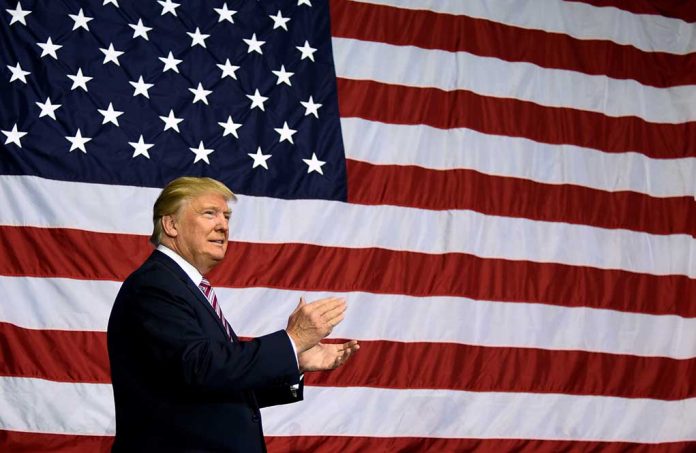
President-elect Donald Trump’s “External Revenue Service” plan promises to transform U.S. import tax revenue but raises key economic questions.
At a Glance
- The External Revenue Service aims to collect tariffs from international trade, shifting the tax focus away from domestic sources.
- The agency is set to launch on January 20, 2025, at Trump’s second inauguration.
- Economic experts worry about increased costs for U.S. importers, potentially passed on to consumers.
- The plan faces skepticism due to possible inflation and retaliatory tariffs globally.
Creation of the External Revenue Service
President-elect Donald Trump plans to introduce a new federal agency called the External Revenue Service. This agency aims to collect tariffs and other duties from foreign sources, reducing reliance on the Internal Revenue Service for domestic tax collections. The shift intends to generate revenue for tax cuts and other government projects by imposing fees on international trade.
Trump announced that the agency will be officially established on January 20, 2025, to coincide with his second inauguration. Currently, U.S. Customs and Border Protection is responsible for tariff collections, but Trump is signaling a significant restructuring of these duties. He openly criticized the existing system for its dependence on what he perceives as outdated international trade agreements.
Economic Implications
Economists have expressed concerns that the introduction of higher tariffs might not effectively shift the tax burden onto foreign exporters, as Trump suggests. Instead, it is argued that American importers are likely to bear these increased costs, which could be passed down to consumers in the form of higher prices. Erica York from the Tax Foundation noted, “The president-elect may try marketing his higher tariff agenda as an external tax, but messaging does not change that higher tariffs will be paid by the people and businesses in the United States who import goods.”
The proposal also includes significant tariff hikes, such as a 10% increase on imports from China and 25% on products from Canada and Mexico. These changes come amidst concerns about potential inflation and the risk of retaliatory tariffs, which could further complicate international trade relations and economic stability.
Rationale Behind the Initiative
Trump defends the creation of the External Revenue Service by arguing that weaker trade agreements have unfairly benefited other countries at the expense of the American economy. “Through soft and pathetically weak Trade agreements, the American Economy has delivered growth and prosperity to the World, while taxing ourselves. It is time for that to change,” Trump stated.
His plan to implement these changes includes the potential declaration of a national economic emergency, under which he could adjust tariffs for national security reasons or address perceived unfair trade practices. While the External Revenue Service proposes to alleviate domestic tax burdens through external revenue sources, experts argue that the execution of this plan could pose significant challenges to the U.S. economy.
Sources:
- Trump says he’ll create ‘External Revenue Service’ to collect tariffs, foreign revenue
- Trump says he’ll create “External Revenue Service” to collect tariffs
- Trump’s ‘External Revenue Service’ will collect from importers, not ‘foreign sources’




